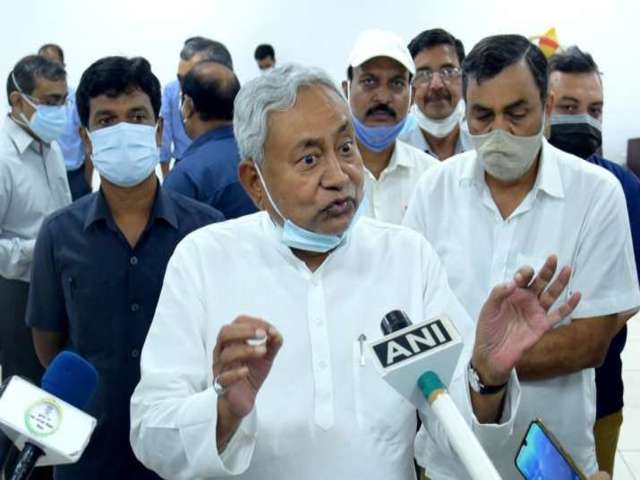
Bihar Chief Minister Nitish Kumar-led ten parties delegation including Bharatiya Janata Party (BJP), Janata Dal (JD), Rashtriya Janata Dal (RJD), and others on August 23, 2021, has arrived at South Block to meet PM Narendra Modi to demand caste-based census.
The Centre however said that as a matter of policy, there is no plan to track caste-wise populations such as Other Backward Classes (OBCs) in India. The Census 2021 will provide only the count of the Scheduled Caste (SC) and Scheduled Tribe (ST) along with the count of the general population.
The 10-parties delegation includes RJD’s Tejashwi Prasad Yadav, JD(U) leader Vijay Kumar Choudhary, who is also the minister for education and parliamentary affairs, former Chief Minister and President of Hindustani Awam Morcha (HAM) Jitan Ram Manjhi, CPI-ML legislature party leader Mahboob Alam, Suryakant Paswan of CPI, Akhtarul Imam of AIMIM, Mukesh Sahni of VIP, Ajay Kunar of CPM, BJP leader and Bihar minister Janak Ram, and Congress legislature party leader Ajeet Sharma.
Why demand for Caste-based Census?
•Bihar CM Nitish Kumar said a caste-based census should be conducted at least once as it is beneficial for the whole country. Other leaders of the delegation stated that the caste-based census will help to collate data on several small castes that have not been able to enjoy the benefits and aid the Government in making better policies for them.
•The leaders insisted on a caste-based census stating that it will curb social hatred, caste-based exploitation, and serve the primary purpose of reservation across all government sectors by reaching all the people of each class.
•Experts in favour of the caste-based census state that not knowing the number of OBCs is a policy blind spot. The need for a caste-based census count to include OBCs arises from the imbalance in terms of the communities and specific castes identified as OBCs that have benefited from the reservations. Reports state that out of the thousands of communities and specific castes listed as OBCs with the Central government, only a handful of them have benefited from the 27 per cent reservation that was recommended by the Mandal Commission.
Why Centre not in favor of Caste-based Census?
•Regarding including data on castes in Census 2021, the Centre has said that as a matter of policy, there is no plan to track caste-wise populations such as Other Backward Classes (OBCs) in India.
•The Registrar General of India and Census Commissioner Vivek Joshi said that the integrity of the Census exercise will be affected adversely if the enumeration of OBCs, SEBs is taken up hence it has been decided to not take it up in Census 2021.
•Joshi further stated procedural issues wherein the current total number of OBCs in India at 6,285 in the Central list will go up to 7,200 if we start taking the list prepared by the States and Union Territories (UTs). The procedure will further lead to misclassification of the castes as people use their clan, gotra, sub-castes, and castes names interchangeably and phonetic similarities in the names.
•Further, the UPA government during its reign raised some difficult scenarios in terms of caste classification such as some states have a list of OBCs, a sub-set of Most Backward Classes, and then open-ended categories such as orphans, migrants, children out of inter-caste marriage,
Caste-based Census Count in India – Background
•The concept of the Census began in India in 1800. The first complete Census count in India was conducted in 1872 during British rule. The last Census count was held in 2011 and the next will be conducted in 2021, which will be the 16th Census Count in India. The Census Count in India is held every 10 years.
•Till 1931, the British included a caste-based Census but from 1941 onwards, the caste count was excluded owing to reported administrative and financial issues with England during World War II.
•The last Caste-based Census Count showed the share of the population of OBCs for 1931 was 52 per cent. In 1980, the Mandal Commission took the same into account for recommending in the 1980 reservations for socially and economically backward classes in the Central government jobs.
•The British had introduced the concept of reservation of marginalized tribes and castes. However, from 1951 onwards, any data for other castes except Scheduled Castes (SCs) and Scheduled Tribes (STs) was excluded.

